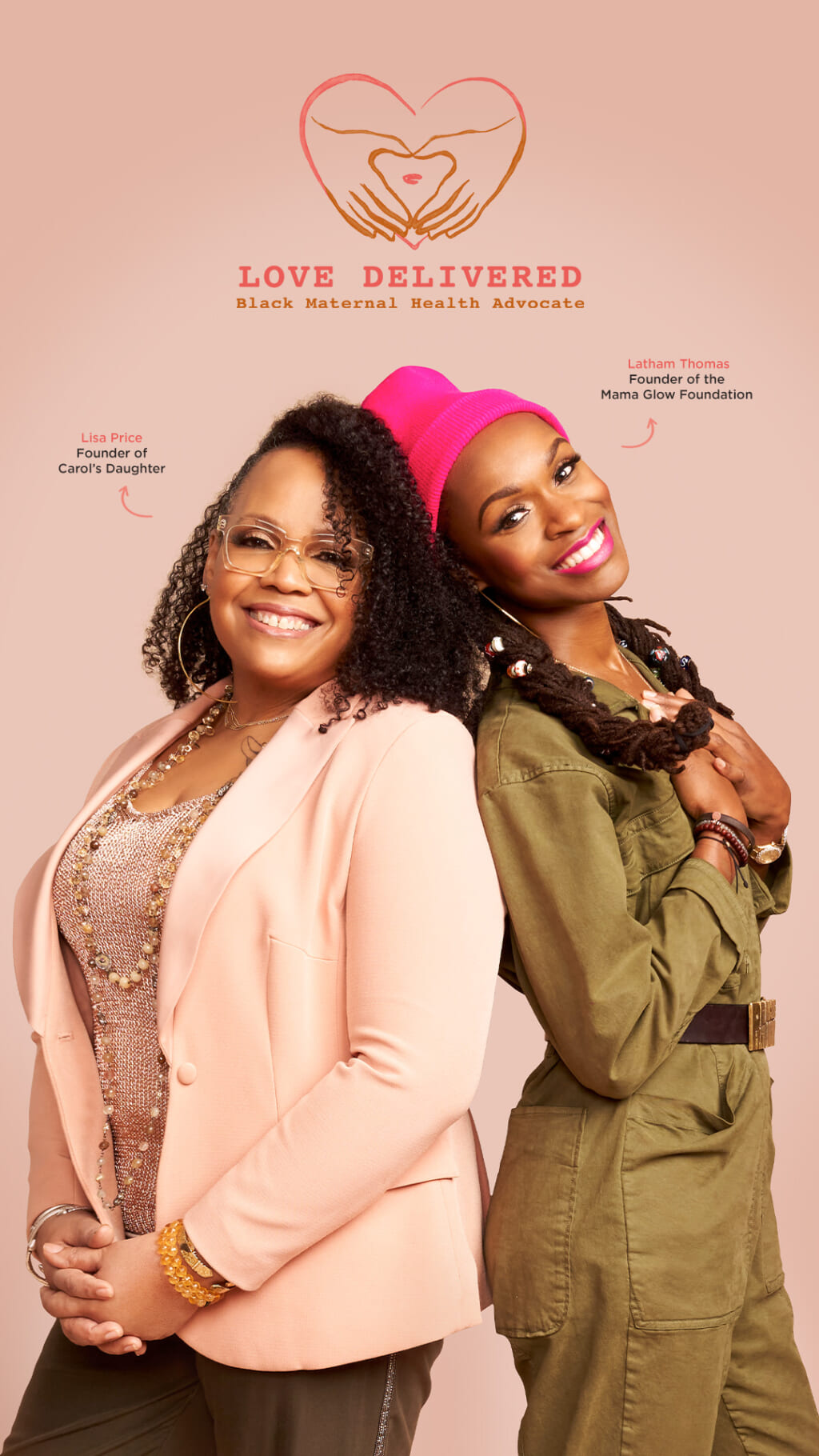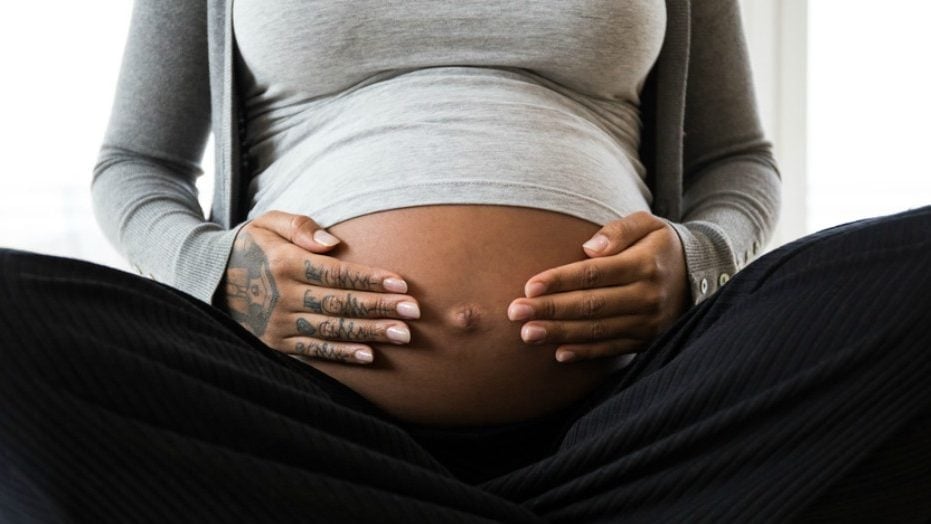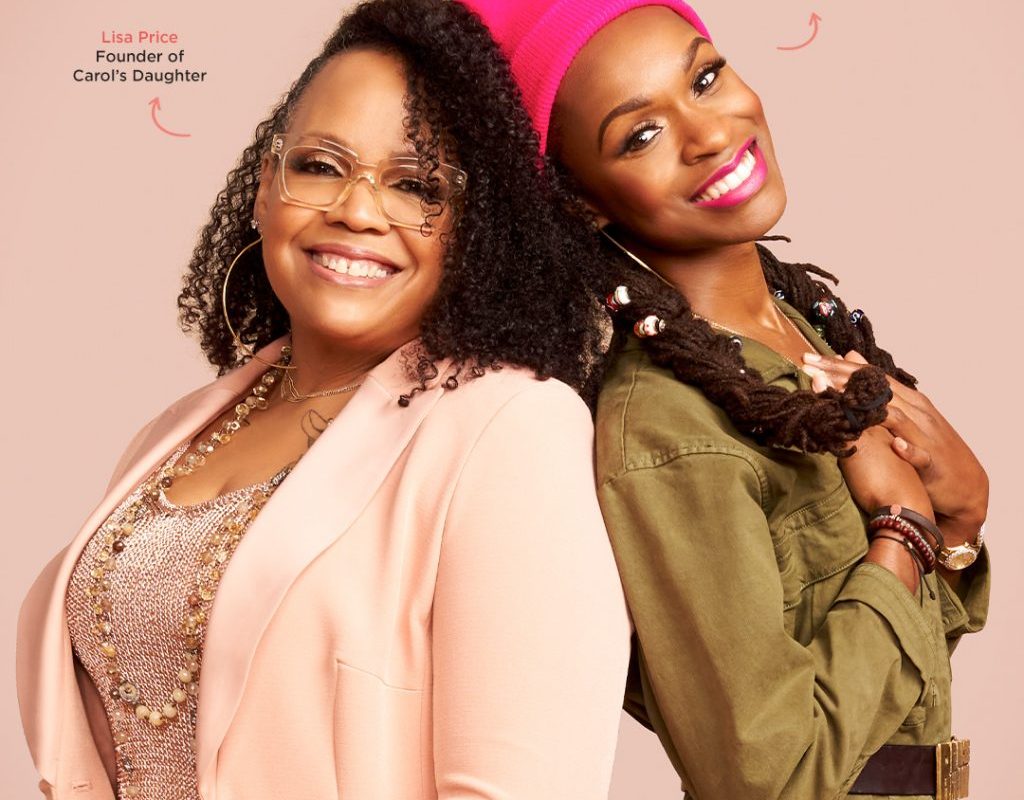Love Delivered aims to educate and empower expectant Black women
Carol’s Daughter founder Lisa Price brings awareness to maternal health with new initiative
Carol’s Daughter founder Lisa Price has partnered with doula Latham Thomas, founder of Mama Glow Foundation, to continue to bring awareness to the Black maternal health crisis with Love Delivered. The beauty mogul and birthing rights advocate, bonded over a shared interest in contributing to their community.
Read More: DMX’s daughter remembers late rapper with touching tribute
Love Delivered launches this week for Black Maternal Health Week (April 11-17th). Throughout the week, Price and Thomas will release conversations that will educate Black birthing people and allies about the disparities in Black maternal health, provide information to help expectant moms advocate for themselves, share in-depth conversations on the role of doulas and midwives, and more.
The initiative will also be a safe space for women to share their birthing experiences.
During an interview with theGrio, Price revealed more about what inspired the initiative and partnership with Thomas.

She says as celebs like Serena and Beyoncé began to publicly speak out about the obstacles in their birthing experiences, she noticed other women on social media opening up and sharing their stories.
“I read those things and I was like, wait a minute. So some of the stuff that I went through, I wasn’t supposed to go through. It wasn’t supposed to be like that? The protocol’s messed up,” says the mother of three.
“And then popular medical television shows began to air some of these concerns and have episodes around some of these issues. And we felt that was a really great place for us to be and a conversation that we wanted to be a part of and anything that we could do to help.”
Price has known Latham, a renowned doula, for many years. She says that If she would have known her when she was pregnant, she believes her birthing process would’ve been different.
“If I can help someone get someone like Latham, to have an advocate for them when they’re going through their birthing process, to at least know what questions to ask, how to be prepared, what to pack in a bag, what they should eat, like, having a baby is such a big deal and it is such an intense process, and no one tells you anything,” says Price.

“And then you get there and you get criticized,” she continues. “Stop making so much noise. Why are you complaining? Don’t scream. Sit this way. Sit that way. You know, it’s like, wait, hold up. Something ain’t right here. So that’s where I’m coming from with it. And to work with someone [like Latham], that I love and admire, makes it so much better.”
Thomas founded the non-profit organization Mama Glow to improve birthing experiences for Black women and now trains doulas across the country and on six continents.
“There are so many organizations and people who are doing this work and a lot of them don’t look like us,” she says. “They’re doing work on our behalf. I think what’s so critically important here is that both of us are at the helm of our companies, me at MAMA GLOW, and then this is an extension through the nonprofit Mama Glow Foundation, being able to provide this type of support from people who look like us.”
Read More: Kelly Rowland busts major moves while 8 months pregnant in video
Thomas’ work was inspired by the harm she saw the medical profession do to Black women but also says she found ways to make the birthing experience a positive one.
“I’ve also witnessed incredible, and experienced for myself, an incredible birth. And so I know what’s also possible,” she says. “I think that part of what we want to do through education is making sure that people have options. I think for both of us, we really want to have people lean into aspiration and that to be helping them to ground their action.”
According to the CDC, “Black women are two to three times more likely to die from pregnancy-related causes than white women – and this disparity increases with age. For women over the age of 30, the pregnancy-related mortality ratio for Black women was four to five times higher than it was for white women.”
The statistics are sobering. But doulas have proven to make a difference in the childbirth experience for Black mothers.
According to the NYC Department of Health, which has launched pilot programs to help connect doulas with mothers-to-be, “Studies have found doula support leads to better labor and birthing experiences, as well as better birth outcomes.”
Latham says the option to include doulas in a birthing plan is especially important for Black women.
“Having a choice and having the option of what your birth experience can look like and being able to actively design what that is for yourself I think is so important,” she explains. “And we need to feel like we have agency. We need to feel like we have sovereignty over our bodies, which is like a fairly new concept for Black women considering our history in this country.”
Thomas continues, “What we’re offering is doula support, for families, this critical element of having this person who is skilled, who is a loving presence of support and is nonjudgmental, who is there to help advocate and help educate you on how you can speak up for yourself. [They] provide physical support, partner support, and education tools, for you to navigate the whole process, regardless of what type of outcome you have, whether it’s a planned C-section, whether it’s a home birth, whether it’s a baby trying to be born in a cab. Whatever it is, you know this person is there to help you meet that moment and create a container of safety around you.”
Read More: Fantasia Barrino says pregnancy, fertility struggles ‘a 3-year journey’
Price explains because of her age and the medical situations that she’s been through, she knows how to overshare and make the best of her time with a doctor.
“Go in with your questions,” says Price. “I’ve also had to be the caretaker for my brother, who’s younger than me. And so I’ve learned how to ask a lot of questions when we’re at the doctor’s office and when people are being dismissive, I have to check them like, ‘wait, hold up, stop right now. You never met me before. Watch your tone. You never met him before. Be respectful. Let’s start this conversation over again.’”
“You have to do that,” she continues. “You have to because there are some circumstances where you can change the provider so that you can say, ‘OK, that person was foul. I’m going to go find someone else.’ And then in emergency situations, you’re stuck with somebody, but you have to let them know to speak to you appropriately and dial it back. And a lot of times it does work. They’re stressed, they’re overworked. You’re just another number to them. They’re not thinking, but when you make them aware of it, they take a breath and do what they’re supposed to do.”

Both hope to empower expectant mothers to stand up for themselves and not be intimidated by the medical profession.
“Sometimes we don’t realize we’re entering into spaces that are not necessarily designed for us to thrive in,” Latham says. “When we get there, we feel “outnumbered” or we feel that we’re neglected or dismissed. You start to feel a certain energy. Any time we have an emotional kick up or something doesn’t feel right, your intuition is telling you that’s information. So you don’t need to now make excuses for why or rationalize. Like, that’s the information. I didn’t feel good. That’s enough. And so I would use that as the foundation really for any of my choices.”
Love Delivered will continue to be a presence even after Black Maternal Health Week is over. According to the official press release, “Love Delivered will work over the next three years, to positively impact the lives of Black birthing people and babies by raising awareness about Black maternal health amongst 100 million people and directly engaging 10,000 people to be advocates.”
Read More: 2021 Met Gala moved to September; theme announced
“Love Delivered is not just about people who are giving birth or want to give birth,” says Price. “It’s anyone that wants to help mothers and children because this is something that needs to stop and it needs to not be an issue. The statistics just don’t make any sense. And they and it shouldn’t exist.”
You can find all the Love Delivered content HERE.
Have you subscribed to theGrio’s new podcast “Dear Culture”? Download our newest episodes now!
TheGrio is now on Apple TV, Amazon Fire, and Roku. Download theGrio today!
The post Love Delivered aims to educate and empower expectant Black women appeared first on TheGrio.

